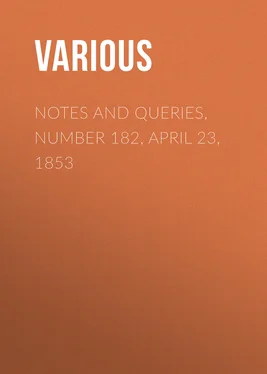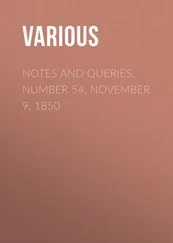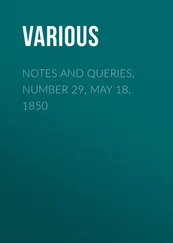Jas. Crossley.
SHAKSPEARE CORRESPONDENCE
Parallel Passages. —
"You leaden messengers,
That ride upon the violent wings of fire,
Fly with false aim; move the still-piecing air,
That sings with piercing,—do not touch my lord!"
All's Well that Ends Well , Act III. Sc. 2.
"the elements,
Of whom your swords are tempered, may as well
Wound the loud winds, or with bemock'd at stabs
Kill the still-closing waters, as diminish
One dowle that's in my plume."
The Tempest , Act III. Sc. 3.
There can be little doubt that the clever corrector of Mr. Collier's folio had the last of these passages in view when he altered the word move of the first, into wound of the second: but in this instance he overshot the mark, in not perceiving the nice and subtle distinction which exists between them. The first implies possibility: the second impossibility.
In the second, the mention of, to "wound the loud wind, or kill the still-closing water," is to set forth the absurdness of the attempt; but in the first passage there is a direct injunction to a possible act: "Fly with false aim, move the still-piecing air." To say " wound the still-piecing air" would be to direct to be done, in one passage, that which the other passage declares to be absurd to expect!
If it were necessary to disturb move at all, the word cleave would be, all to nothing, a better substitution than wound .
Whether the annotating of Mr. Collier's folio be a real or a pseudo-antique, it is impossible to deny that its executor must have been a clever, as he was certainly a slashing hitter. It cannot, therefore, be wondered that he should sometimes reach the mark: but that these corrections should be received with that blind and superstitious faith, so strangely exacted for them, can scarcely be expected. Indeed, it is to be regretted that they have been introduced to the public with such an uncompromising claim to authority; as the natural repugnance against enforced opinion may endanger the success of the few suggestive emendations, to be found amongst them, which are really new and valuable.
Конец ознакомительного фрагмента.
Текст предоставлен ООО «ЛитРес».
Прочитайте эту книгу целиком, купив полную легальную версию на ЛитРес.
Безопасно оплатить книгу можно банковской картой Visa, MasterCard, Maestro, со счета мобильного телефона, с платежного терминала, в салоне МТС или Связной, через PayPal, WebMoney, Яндекс.Деньги, QIWI Кошелек, бонусными картами или другим удобным Вам способом.
Footnote 1:
The epithets "heavenly," "holy," "solemn," &c., represent the nightingale's song, as spoken of by Keats, as the bird's "plaintive anthem ;" by Mackay, as its
" Hymn of gratitude and love;"
and by Moore also, in his account of the Vale of Cashmere, as
"The nightingale's hymn from the Isle of Chenars."
In A Proper New Boke of the Armony of Byrdes (quoted by Dibdin, Top. Antiq. , iv. 381.), of unknown date, though probably before 1580, the nightingale is represented as singing its Te Deum:
"Tibi Cherubin
Et Seraphin
Full goodly she dyd chaunt,
With notes merely
Incessabile
Voce Prœclamant."
( Troilus and Creseide ) imagines the nightingale to "stint" at the beginning of its song, and to be frightened at the least noise.
This, and the epithets of "sole-sitting" and "unseen," refer to the nightingale's love of solitary seclusion.
"He slep no more than doth the nightingale."
Chaucer,
Cant. Pil.












